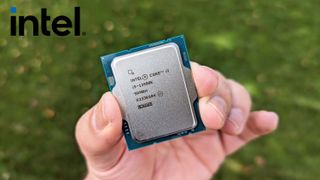Intel 13th Gen series: Everything we know about Raptor Lake
Intel 13th Gen CPUs are now here, but there's still more to come. Here's everything we know.

Intel's 12th Gen series of processors was a huge success in bringing something new to the market with its hybrid core design and packed a punch to better compete against AMD Ryzen. The latest 13th Gen processors take this same idea and turn it up a little to deliver some of the best performance ever seen on a consumer CPU.
Now available, initially only on desktop, the 13th Gen from Intel is definitely taking it to AMD for the crown of best CPU. The lineup will be expanding soon, though, with the first laptops using 13th Gen CPUs expected to launch in the early part of 2023.
Here's everything we know right now about Intel's latest and greatest.
Intel 13th Gen Raptor Lake at a glance

Raptor Lake is the codename for Intel's next-gen family of 13th Gen processors for desktop and laptop PCs. These chips are based on the same 10nm manufacturing process (confusingly marketed as Intel 7) as the 12th Gen Alder Lake. As was also the case with the 12th Gen series, Intel has worked to lower power consumption, improve clock speeds, and add additional cores.
13th Gen uses the same socket as 12th Gen, and both the previous generation Z690 and the newer Z790 motherboards are initially compatible, along with the B660 chipset boards. Z790 motherboards will run out of the box with 13th Gen, while Z690 and B660 will require a BIOS update first. And for these you'll need to have access to a 12th Gen CPU.
Intel 13th Gen CPU specifications

One of the headline features of the 13th Gen CPUs is that Intel has doubled the number of E (efficient) cores on every SKU launched so far when compared to its 12th Gen predecessor.
In the case of the range-topping Intel Core i9-13900K this means 16 E-cores joining the 8 P (performance) cores for a total of 24-cores and 32-threads. The P-cores support hyperthreading while the E-cores do not.
Besides higher core counts, Intel has increased the turbo clock speeds on tap, with the Core i9 able to offer 600MHz more than its predecessor. All cores can be overclocked, too, on the K and KF variants. Indeed some of the world's best overclockers have already pushed the Core i9-13900K to 8GHz and beyond.
13th Gen also increases its DDR5 support from the 4800 officially supported on 12th Gen to 5600. DDR4 memory support remains up to 3200, so while this will likely be the last time you can re-use some of your existing hardware before 14th Gen hits, you at least don't need everything new.
The same socket means the same coolers supported on 12th Gen will work on 13th Gen just fine, and both PCIe 4.0 and PCIe 5.0 are in play. The latter is yet to really become a thing, but you're ready for it with a 13th Gen CPU.
Motherboards for Intel 13th Gen CPUs

As aforementioned, it isn't be a requirement to upgrade to a new motherboard to make full use of a 13th Gen processor, so long as you're moving from a 12th Gen CPU. This would mostly just mean you'd lose out on a few minor connectivity improvements brought forward in Raptor Lake, namely PCIe lanes.
Previously, Alder Lake processors supported 16 PCIe 5.0 lanes for a discrete GPU or other card connected to a slot on the board. Now, Intel is allowing motherboard manufacturers to essentially split the 16 lanes from the CPU into a dual 8-lane configuration, enabling support for a discrete GPU and PCIe 5.0 SSDs.
New Z790 boards have launched alongside the new 13th Gen processors, but existing 600-series motherboards will work just fine with a BIOS update. You will need to retain access to a 12th Gen CPU to apply these, though, so if you're buying fresh or upgrading from an older generation it's a better idea to get a Z790.
13th Gen Intel CPU release dates

The first slate of Intel 13th Gen CPUs went on sale in late October 2022 with prices starting from $300. The first six CPUs on sale cover the Core i5, Core i7 and Core i9, and come in two versions.
The KF versions should be about $30 less expensive, but they don't have integrated graphics. A good chance to save a few bucks if you already have a graphics card, but you won't have a display output otherwise.
In 2023 it's expected that many more SKUs will become available to both OEMs and retail customers.
For more information be sure to check out our reviews of the 13th Gen Intel Core i9, Core i7, and Core i5.
Intel 13th Gen laptop CPUs
Intel hasn't officially revealed its suite of laptop 13th Gen CPUs yet, but we expect to see the first devices powered by them launching at CES 2023 in January.
Intel alluded to its laptop CPUs in the Unison announcement and confirmed that the already familiar naming scheme utilizes U, P, H, and HX.
Lenovo recently announced new ThinkPad X1 laptops with "Intel's latest processors," which seems coded PR for Intel's 13th Gen chips, which are likely to ship in spring 2023.
Get the Windows Central Newsletter
All the latest news, reviews, and guides for Windows and Xbox diehards.

Rich Edmonds was formerly a Senior Editor of PC hardware at Windows Central, covering everything related to PC components and NAS. He's been involved in technology for more than a decade and knows a thing or two about the magic inside a PC chassis. You can follow him on Twitter at @RichEdmonds.
- Richard DevineManaging Editor - Tech, Reviews
